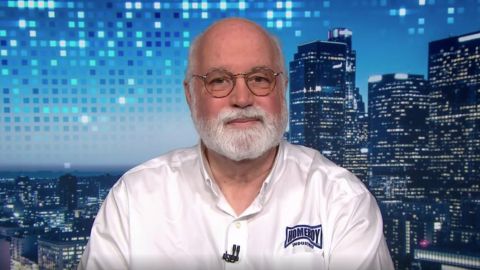Read Transcript EXPAND
PEGGY ORENSTEIN, AUTHOR, “BOYS AND SEX”: Well, you know, the fact is that right now boys face a lot of mixed messages that are telling them on one hand to be scrupulous about consent and on the other hand, that they should, you know, hookup with as many girls as possible without much care or concern for either their feelings or their partners’. So, that creates a real contradiction in boys. And when I would talk to guys, you know, on one hand, again, it’s this contradiction that they were really egalitarian in the classroom, they felt girls were deserving of their place in leadership and professional and academic opportunities. But then if I would ask them, what is the ideal guy? I always ask that. You know, it was like they were channeling 1955. So, it was all the old stuff, aggression, being dominating, being athletic, sexual conquests and especially emotional suppression.
CHRISTIANE AMANPOUR: Wow. I’m going to get to emotional suppression in just a second. But I want to ask you, after, I think, 25 years of chronicling the life of girls, when it comes to, you know, being a girl or a boy and sex, what are the immediate differences? What are girls worried about when they talk to you and what are boys worried about?
ORENSTEIN: Well, you know, the whole book — the two books were really interesting and really very much about those differences. And, you know, for boys, again, there’s this issue of sexual conquests that still really defines what it means to be an ideal guy. And when they talk about sex, for instance, you know, when guys talk amongst themselves, what do they do? They hammer, they bang, they pound, they nail, they tap that, they hit that, you know. It’s like they went to a construction site. It’s not like they engaged in an act of intimacy. And a lot of guys that I talked to were sort of struggling with that and with that expectation that they present that to the world in one way, even if that wasn’t really how they felt.
AMANPOUR: I heard and I see you write that, in a way, when you discuss with girls, they were worried about issues of, you know, whether they were — the body issues and things like that. Where boys are more worried about, you know, being cut off, as you put it, from their heart and those kinds of issues, that they’ve created this sort of barriers and walls around themselves in different ways than girls have.
ORENSTEIN: Yes. Absolutely. I mean, if there’s that sort of a two-sentence comparison of the two books, it would be that boys — girls were cut off from their bodies and their bodies’ responses and boys were kind of systematically cut off from their hearts. So, you know, what boys would say to me was that they learned to put up a wall between their real feelings and the world or they’d say, I trained myself not to feel or I trained myself not to cry. So, one guy said to me, you know, he wanted to cry when his parents got divorced, but he couldn’t. So, he streamed three holocaust movies back to back, and, you know, that worked. And very much, I think, at the heart of “Boys and Sex” is this issue of vulnerability for men and, you know, either rejecting at the taboo against it, embracing it, capitulating to it and really wrestling with it all the time.
About This Episode EXPAND
Christiane Amanpour speaks with Peggy Orenstein about the messages our culture sends boys about emotional suppression and sexual aggression. She also talks to Father Greg Boyle about his organization Homeboy Industries, the largest rehabilitation program in the world for active gang members. Hari Sreenivasan sits down with National Geographic Fellow Dan Buettner to discuss The Blue Zones Project.
LEARN MORE


